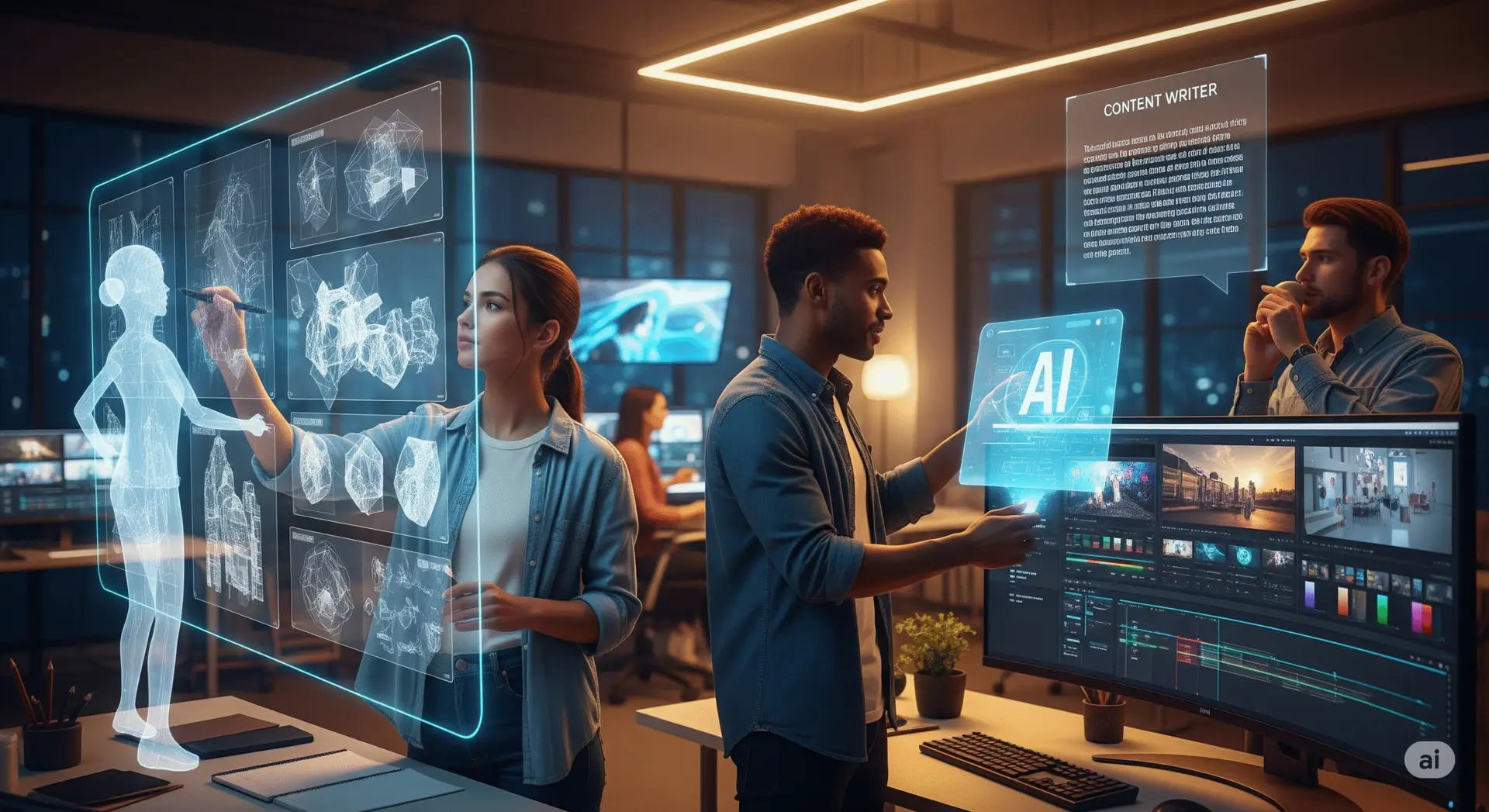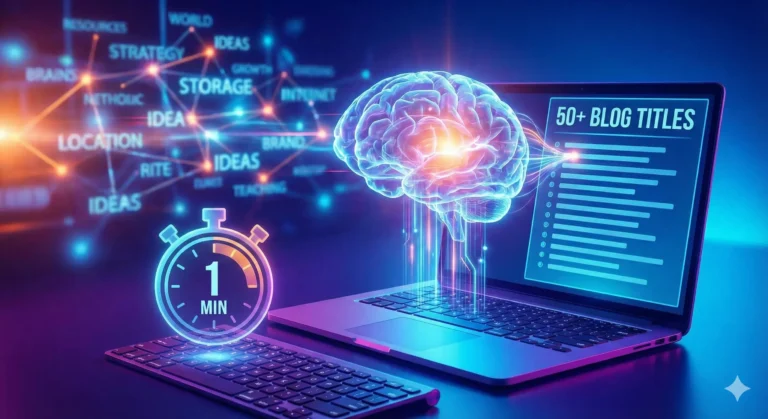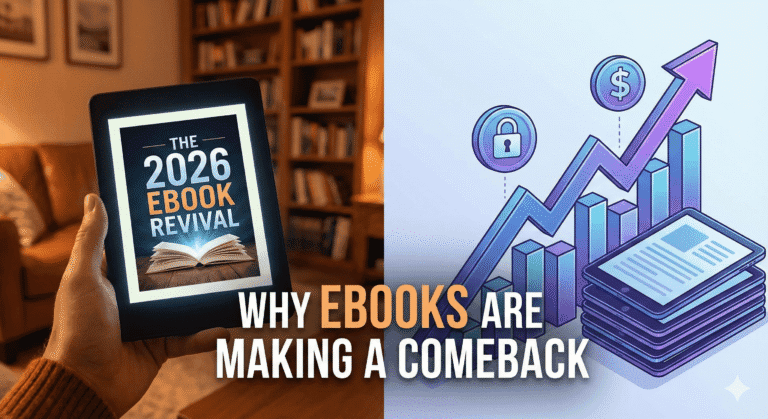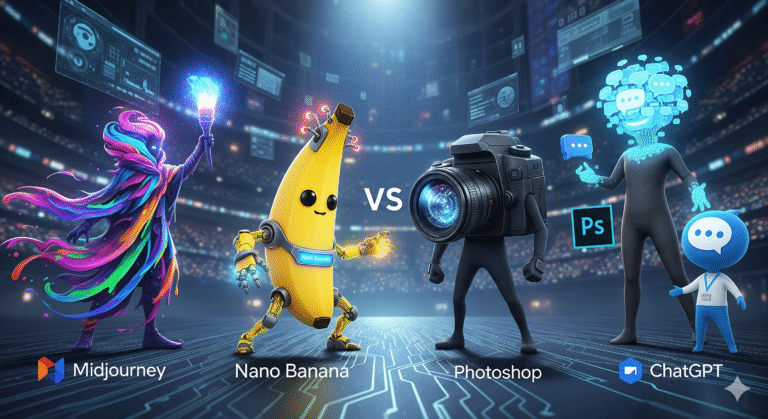Beyond the Hype: Unveiling How AI-Generated Content is Truly Revolutionizing Digital Products
Table of Contents
Remember those days of staring at a blank screen, the cursor blinking mockingly as you struggled to craft compelling ebook copy, engaging social media posts, or even just effective product descriptions for your latest digital creation? You poured hours into content creation, often feeling like the creative well was running dry. What if I told you that the landscape is shifting dramatically, offering a powerful new ally in your digital product journey? It’s not just futuristic talk anymore; AI-generated content is here, and it’s profoundly changing how we create, market, and sell digital products. Let’s look beyond the buzzwords and explore the real revolution.
The Rise of AI in Digital Product Creation: More Than Just a Trend
The era of AI as a niche technology reserved for tech giants is over. Today, you’re witnessing the democratization of artificial intelligence, which is making sophisticated AI content creation tools accessible to everyone, from solopreneurs to small business owners. This isn’t just a fleeting trend; it’s a fundamental shift in how we approach creative work. Initially, many viewed AI with skepticism, fearing it would produce generic, soulless content. However, the technology has evolved rapidly, and modern AI is now capable of producing nuanced, context-aware, and even emotionally resonant material.
The data supports this. The global market for AI content generation is exploding, with a recent study projecting significant growth over the next five years. This surge is driven by a new generation of multimodal AI models, which can process and generate content across various formats—from text and images to audio and video. This means you now have an incredibly versatile tool at your disposal, capable of assisting you in every stage of your digital product’s lifecycle. The key is understanding that AI isn’t here to replace you but to augment your capabilities, helping you to work smarter, not harder.
Supercharging Your Workflow: How AI is Transforming Digital Product Development
Think about your last digital product launch. How much time did you spend on the repetitive, yet essential, tasks? From drafting product descriptions to creating a dozen social media posts, these steps are critical but can drain your creative energy. AI changes this equation entirely, allowing you to significantly accelerate your workflow.
- Content Creation Acceleration: Imagine sitting down to write a 100-page ebook. Instead of starting from a blank page, you can feed an AI a detailed outline and receive a solid first draft in a fraction of the time. This frees you up to focus on what truly matters: refining the narrative, adding your personal insights, and ensuring the content delivers maximum value to your audience. This same principle applies to generating blog posts, email sequences, and even website copy. For instance, companies are saving thousands of work hours a month by using AI to draft emails and documents.
- Design Assistance: You don’t need to be a professional graphic designer to create visually appealing assets anymore. AI can generate basic graphic elements, suggest design ideas, and automate tedious tasks like resizing images for different social media platforms. You can input a description of what you need, and the AI will provide a range of options, giving you a strong starting point for your creative vision.
- Idea Generation and Research: Stuck in a creative rut? AI can be your personal brainstorming partner. By analyzing market trends and vast amounts of data, it can help you identify profitable niches, suggest new product ideas, and even summarize complex research papers to give you the information you need, fast. This is a game-changer for staying ahead of the curve in a crowded market.
Crafting Compelling Marketing with AI-Powered Content
Once your digital product is ready, the next step is to get it in front of the right people. This is where AI becomes a powerful marketing ally, helping you create highly effective campaigns that resonate with your audience on a personal level.
- Personalized Customer Engagement: Generic marketing messages are a thing of the past. AI allows for hyper-personalization at a scale that was previously impossible. You can now generate tailored email marketing messages, create dynamic content for landing pages, and provide product recommendations that are specific to each individual’s behavior and preferences. Data shows that personalized calls-to-action can lead to a 202% better conversion rate, and personalized emails deliver six times higher transaction rates.
- SEO Optimization: To rank high on search engines, your content needs to be both valuable to readers and optimized for algorithms. AI tools can help you in both areas. They can identify high-performing keywords, help you structure your articles to cover competitor gaps, and even generate meta descriptions and title tags that are more likely to get clicks. The best practice is to use AI for research and structure, then inject your unique expertise to create content that adheres to the E-E-A-T (Expertise, Experience, Authoritativeness, and Trustworthiness) principles.
- Social Media Domination: Keeping up with the content demands of multiple social media platforms can be a full-time job. With AI, you can generate a steady stream of engaging posts, create captions, and even schedule your content to go out at optimal times. This consistency helps you build a strong brand presence and keeps your audience engaged.
Addressing the Concerns: Quality, Authenticity, and the Human Touch in AI Content
As with any new technology, using AI-generated content comes with its own set of challenges and ethical considerations. The most common concern is that AI will produce low-quality, generic content that lacks authenticity. However, you are the one in control. The key is to see AI as a co-pilot, not an autopilot.
- Human Oversight is Non-Negotiable: Never publish AI-generated content without a thorough human review and edit. AI can “hallucinate” and produce inaccurate information, so fact-checking is crucial. Your role as the human creator is to ensure accuracy, maintain brand voice, and infuse the content with your unique perspective and personality.
- Maintaining Brand Authenticity: To prevent your content from sounding robotic, you must actively refine the AI-generated output. Add your personal stories, unique analogies, and specific examples that only you could provide. This is how you transform a generic draft into an authentic piece of content that connects with your audience.
- Ethical Considerations: You must be mindful of the ethical implications. This includes understanding potential biases in the AI models, respecting intellectual property rights, and being transparent about your use of AI. The goal is to use AI responsibly and ethically to enhance your work, not to deceive your audience.
Future Trends: The Evolving Landscape of AI and Digital Products
The relationship between AI and digital products is constantly evolving. Looking ahead, you can expect to see even more sophisticated tools that seamlessly integrate into your workflow.
- Agentic AI Systems: Soon, you won’t just be giving AI a single command. Instead, you’ll be able to delegate complex, multi-step tasks to “agentic AI” systems. These autonomous programs will be able to perform a series of actions to achieve a goal, such as not only drafting an ebook but also creating a complete marketing campaign around it.
- Hyper-Personalization at Scale: The future of AI in digital products will be defined by its ability to create truly unique experiences for every single user. Imagine a digital course that adapts its content in real-time based on your learning style, or a fitness app that creates a new workout plan every day based on your real-time performance data. The possibilities are endless.
Getting Started: Practical Steps to Integrate AI into Your Digital Product Strategy
Ready to harness the power of AI-generated content for your business? Here’s how you can get started:
- Identify High-Impact Areas: Don’t try to use AI for everything at once. Start by identifying the most time-consuming tasks in your current workflow where AI could provide the most immediate value, such as generating social media posts or writing product descriptions.
- Choose the Right Tools: The market is full of AI content creation tools, each with its own strengths. Start with a free trial of a few platforms to see which one best fits your needs. Some tools are great for long-form content, while others excel at generating marketing copy or images.
- Experiment and Learn: Start with small projects. Use AI to write a blog post draft or create a few design variations. Learn how to craft effective prompts, or “recipes,” that yield the best results.
Recipes for Success with AI-Generated Content
Here are a couple of examples of how you can use AI to build your digital product empire.
Recipe 1: Speedy Ebook Creation
| Ingredient | Quantity | Description |
| AI Writing Tool | 1 | A powerful platform for long-form content generation. |
| Target Audience Data | Detailed | Demographics, interests, and pain points. |
| Ebook Outline | 1 | A structured plan for your ebook with key topics. |
| Human Editor | 1 | Your personal touch for refinement and authenticity. |
Export to Sheets
Instructions:
- Feed your detailed ebook outline and audience data into the AI writing tool.
- Generate initial drafts for each chapter, focusing on getting the core information down quickly.
- Review and edit the AI-generated content for accuracy, clarity, and tone.
- Add your unique insights, personal anecdotes, and examples to make the content truly your own.
- Finalize and format your ebook, ready for sale.
Recipe 2: Engaging Social Media Updates
| Ingredient | Quantity | Description |
| AI Social Media Tool | 1 | A platform for content generation and scheduling. |
| Content Themes | A few | Relevant topics for your target audience. |
| Target Keywords | Several | Keywords related to your digital products. |
| Brand Guidelines | 1 | Your brand’s unique voice, style, and visuals. |
Export to Sheets
Instructions:
- Input your content themes, keywords, and brand guidelines into the AI social media tool.
- Generate a variety of social media post variations (e.g., text posts, carousels, video scripts).
- Select the most engaging options and customize them further with a personal touch.
- Schedule your posts for optimal times to maximize reach and engagement.
- Monitor performance and use the insights to refine your future content strategy.
Conclusion: Embracing the AI Revolution in Digital Products
The revolution in digital products is here, and it’s being powered by AI-generated content. This technology is no longer a luxury but a strategic tool that can help you accelerate your creative process, scale your marketing efforts, and ultimately, build a more successful and profitable business. By embracing AI as a powerful assistant and not a replacement, you can unlock a new level of productivity and creativity. The future belongs to those who learn to work alongside these intelligent systems, blending the efficiency of AI with the irreplaceable power of the human touch.
Frequently Asked Questions (FAQ) about AI-Generated Content
Q: What exactly is AI-generated content?
A: AI-generated content is any form of media—text, images, audio, or video—that is created or assisted by artificial intelligence algorithms. These tools use machine learning to process massive amounts of data and produce original content based on your prompts and instructions.
Q: Can AI-generated content completely replace human content creators?
A: No, AI-generated content cannot fully replace human creativity. While AI can automate many repetitive tasks and generate a first draft, it lacks the unique experiences, emotional intelligence, and critical thinking that humans bring to the table. The most effective approach is a partnership, where AI handles the heavy lifting and you provide the creative direction and final polish.
Q: Is AI-generated content good for SEO?
A: Yes, AI-generated content can be great for SEO when used correctly. AI tools can help you with keyword research, topic ideation, and creating a strong article structure. However, to rank high and build trust with your audience, you must add your own expertise and original insights to the AI-generated content, ensuring it’s valuable and authoritative.
Q: Are there any ethical concerns associated with AI-generated content?
A: Yes, there are several ethical considerations. These include the potential for AI to produce biased, inaccurate, or unoriginal content. It’s your responsibility to review and fact-check all AI-generated content, ensure transparency, and use the technology in a way that respects intellectual property and avoids misinformation.







